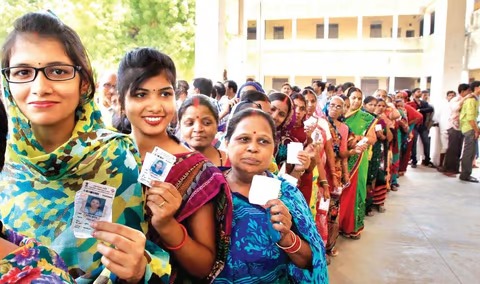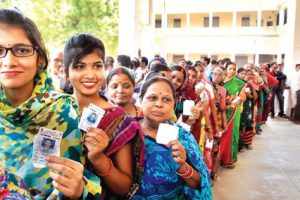A recent survey conducted by Lokniti-CSDS across 19 of India’s 28 states sheds light on the predominant concerns of Indian voters as the country gears up for a seven-phase general election starting on April 19. Despite significant economic growth, unemployment and rising prices remain the primary worries for voters, overshadowing India’s position as the world’s fastest-growing major economy.
Unemployment emerged as the top concern for 27% of the 10,000 voters surveyed, followed closely by inflation at 23%, as reported by the Hindu newspaper. This sentiment underscores the prevailing challenge of job creation, despite Prime Minister Narendra Modi’s emphasis on domestic manufacturing over the past decade. Despite India’s impressive economic growth, benefits have not been evenly distributed, leaving a substantial portion of the population struggling to find employment.
Official data reveals a concerning trend, with the unemployment rate rising to 5.4% in 2022/23 from 4.9% in 2013/14, just before Modi assumed office for his first term as prime minister. Particularly alarming is the nearly 16% unemployment rate among urban youth aged 15-29, attributed to inadequate skills and a scarcity of quality job opportunities.
While some respondents acknowledged Modi’s government’s construction of a grand Hindu temple dedicated to Lord Ram as a positive action, only 8% identified it as their primary concern. Modi’s supervision of the temple’s consecration in January has been leveraged by his Hindu nationalist Bharatiya Janata Party (BJP) in its election campaign, emphasizing the fulfillment of a longstanding Hindu demand.
However, Modi’s leadership has not been without controversy. In a recent campaign speech in Jammu and Kashmir, Modi criticized the main opposition Congress party for its refusal to attend the temple inauguration, accusing them of playing politics. Congress justified its decision, denouncing the event as a “political project” of the BJP.
Despite the BJP’s focus on Hindu identity consolidation through the temple, a significant majority of respondents (79%) affirmed that India belongs to citizens of all religions equally, not solely Hindus. Moreover, voters were attracted to India’s growing international stature, with events such as its presidency of the G20 bloc last year and hosting the G20 leaders in September garnering attention.
Approximately 8% of respondents expressed appreciation for the government’s efforts to enhance India’s international image. These findings reflect a nuanced perspective among Indian voters, balancing concerns about domestic issues with aspirations for India’s global prominence. As the election approaches, the interplay between economic concerns, identity politics, and international relations will shape the electoral landscape and influence voter decisions.


